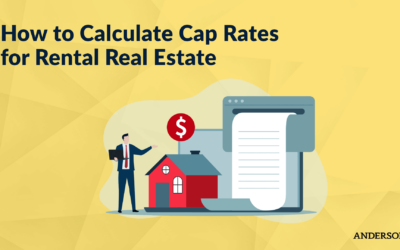In this episode of Coffee with Carl, attorney Carl Zoellner breaks down “double taxation” that so many bring up when discussing C-corporations.
Updated September 16, 2020
If you’ve ever considered forming a C-corporation to run your active business through, you’ve probably heard about “double taxation” from your CPA or accountant. Many tout double taxation as a disadvantage of this type of business entity, but what does double taxation actually mean? Let’s look more closely.
Defining Double Taxation
When people refer to the double taxation issue with C-corporations, what do they mean? Well, if your C-corporation shows a taxable profit, the corporation will pay a flat 21% tax on that profit. This is the new flat tax rate implemented by the Tax Cuts and Jobs Act.
So, what’s the second level of taxation people talk about? When you take a salary out of that corporation, you’ll be on the hook for income taxes at your tax bracket. Additionally, you’ll also owe self-employment tax.
This is what people refer to when they say that C-corporations are subject to double taxation: first, the corporation pays taxes on the profit, then the individual pays taxes on their salary.
Avoiding Double Taxation
Although yes, it’s true that there is this “double taxation” with C-corporations, there are, in fact, other ways to pull money out of a corporation that doesn’t create a taxable event. One of the most common methods I see is through reimbursements. This may not be relevant for every corporation — it depends on what you’re doing in and how much you’re using your corporation.
Reimbursements aren’t taxable to you as an individual because you’re being reimbursed for your out-of-pocket spending for the corporation’s expenses. Reimbursements can also apply if your corporation uses a personal item of yours and pays you for its use. One example of this is the business mileage reimbursement. In 2020, your corporation can reimburse you 57.5 cents a mile for using your personal vehicle for business travel.
Another possibility for pulling money out of the corporation is through dividends. If you pay yourself a dividend, you’ll owe taxes at the long-term capital gains rate, which may be more favorable than your income tax bracket.
Additionally, you could look at Section 280A in the Tax Code for another strategy for getting money out of the corporation without being hit with double taxation.
The Takeaway
Overall, what it comes down to is this: unless you’re looking to be more lendable in the eyes of banking institutions, you won’t be paying yourself a salary from your C-corporation most of the time. I’ll create another video in the coming episodes explaining why you would want to take a salary from your C-corporation.
Although people often tout “double taxation” as a big, scary reason why you shouldn’t use a C-corporation, this is not always the case. Not every dollar coming from a C-corporation is subject to double taxation. Many times, “double taxation” is thrown around without a clear explanation of what it is, how to avoid it, and when it makes sense to subject yourself to more taxes upfront from a business planning perspective.
If you’re a high-earning W-2 worker, it may make sense for you to leave money inside the corporation because, unlike pass-through entities like partnerships and S-corporations, you can control the flow of income with a C-corporation. This means that you can control whether that money shows up on your personal tax return. Pass-through entities don’t allow this flexibility.
Watch as Carl covers double taxation for C-corporations: what it is and how to avoid it.
Resources mentioned in this video
Claim your complimentary Structure Consult now to learn the right entity structure for you
Check out our Tax & Asset Protection Workshop for more real estate strategies
Got an idea for a future Coffee with Carl? Send it to Carl at cwc@andersonadvisors.com.
BONUS VIDEO
Free Strategy Session with an Anderson Advisor
Receive a detailed risk assessment to assist in lowering problem areas that could wipe out all of your assets with one wrong move. Speak with an Anderson Professional Advisor to get your FREE Strategy Session.
Limited-Time Offer: ($750 value.)











